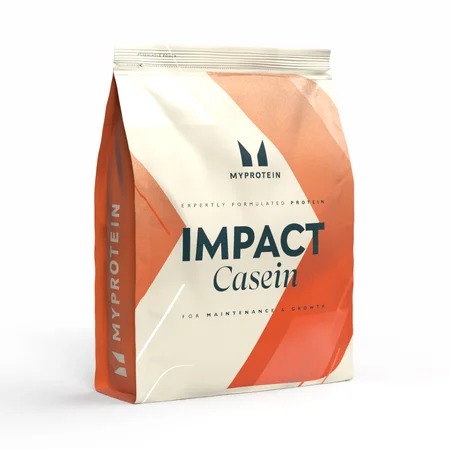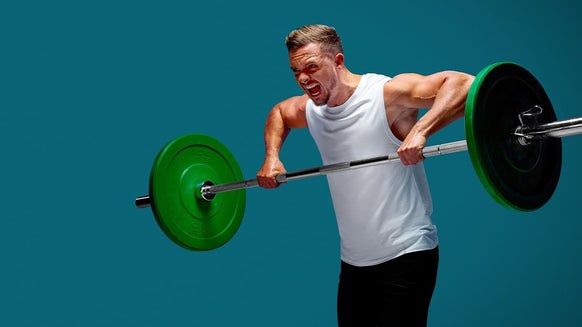The Best Protein Shakes For Women

Protein shakes are not just for guys looking to pile on muscle mass and throw heavy weights around the gym. In fact, the best protein shakes are often for women as well as men. Protein plays a vital role in your body and getting your protein intake right can lead to a number of widespread benefits.
These range from changing body shape and increasing fat loss, to enhancing sporting performance through the develop of lean body mass and quicker recovery times.
So, stop worrying you’ll end up looking like the Hulk, because we’ve got down all the benefits of protein for women and are here to help you choose the best supplements to get you to your health and fitness goals.
In this article, you'll find:
3 best protein shakes for women
Why would women use protein shakes?
How do protein shakes work for women?

Best 3 protein shakes for women
Different types of protein have different amino acid profiles and are digested differently. These factors will you decide which protein shake is best for you in a certain scenario. The evidence shows that there is very little difference between men and women in how protein is utilised.10
The main difference that women may need to take into account is the calorie intake. Due to size differences the calorie intake needed for women tends to be lower than in men. This may mean that in order to keep calories down, women probably won’t need a ‘mass gainer’ type protein shake with added carbohydrate.
However, this isn’t always the case and the amount of calories and carbohydrates needed will depend on the individual with factors such as activity level and body weight which need to be taken into consideration.
1. Whey Protein
Due to its fast digestion rate, whey is a great protein shake to consume following a workout.11 This means the amino acids that are required to enhance muscle protein synthesis (muscle building) enter your blood stream quickly.
This will mean your body will start recovering faster and any gains made in your training session will be enhanced. So, you’ll see results faster and be able to get back to the gym sooner to keep building on your progress.
Studies have shown those consuming a whey protein shake following resistance exercise has helped to improve lean body mass, strength and recovery better than without a shake.
2. Casein
Casein has a slower digestion rate than whey protein, which can make it a better choice when having an afternoon snack or as a late night, pre-bed meal.12
Due to its slow digestion rate, the length of time that your body’s muscle protein synthesis rate is elevated lasts much longer than whey.9 This is important as it helps to reduce the amount of protein breakdown.
Muscle protein breakdown rates that exceed muscle protein synthesis rates for a period of time will lead to a loss of lean body mass. A loss of lean body mass will result in a loss of strength and potential detrimental metabolic effects.
3. Protein blend
Protein blends typically contain both whey and casein. Theoretically, they can therefore provide the benefits of both whey and casein in the same shake.
You will have an initial raise in muscle protein synthesis due to the whey and this rate will be sustained for longer due to casein.
Evidence the highlights the potential benefits of consuming a protein blend is study that compared the use of a whey protein shake and a protein blend. The study showed that after 10 weeks of resistance training, those consuming the protein blend gained more lean body mass.13
Why would women use protein shakes?
Body composition and fat loss
In order to lose weight and body fat, your body needs to be in a negative energy balance. This means that the amount of calories you burn needs to be higher than your calorie intake. When losing weight in an energy deficit, the loss of muscle mass can be up to 25% of the total body weight lost.1
Lean body mass, especially skeletal muscle, plays an important role in metabolic health, sporting performance and the appearance of your physique.1 Keeping your protein intake high when you’re in an energy deficit can help to preserve this critically important lean muscle mass.1
Studies show that, during periods of reduced calorie intake, a daily protein intake of 1.6g per kilogram of bodyweight will help to preserve lean muscle mass.2 Additionally, there’s evidence to show that it’s possible to even build muscle in an energy deficit when consuming protein intakes of up to 2g per kilogram of bodyweight per day.2
These high protein intakes can be quite hard to hit if you don’t have many calories to play with. This is where a protein shake can really help. A protein shake can provide 20g of protein and only 100 calories — that’s pretty low in calories and convenient.
In comparison to the other macronutrients — fat and carbohydrate — consuming protein has a greater impact on how full you feel (satiety).3 This means that after a high-protein food you’ll feel fuller for longer. This can be a great help when following a calorie restricted weight loss plan as it can help to fight the temptation of highly calorific foods. So, ditch the crisps and settle for a shake instead.
Another way in which a high protein intake can help with fat loss is due to the thermogenic effect that eating protein causes.3 The thermic effect of food is the energy required for your body to digest and absorb it. By increasing your protein intake, you can increase your daily energy expenditure.
Whilst the effects may be relatively small on a daily basis, over a long period of time this can add up. As a recent review paper has highlighted, raising energy expenditure by 168 calories a day will lead to a weight loss of 1.6kg over the course of a year.3
Using a protein shake to keep your protein intake high while in an energy deficit will help you lose body fat and preserve lean muscle leading to a toned, strong physique.
Recovery
Having a protein shake following a workout will also help your muscles to recover quicker. A typical resistance training session will damage muscle tissue which will lead to feelings of muscle soreness.
This will be more pronounced if you’re new to training with weights. Your muscles adapt over time, so it takes less training to cause muscle damage if you’re not used to it.
Having a protein shake after you’ve trained could reduce the dreaded DOMs (delayed onset muscle soreness) and stop you from hobbling around for days after your session — you might even be able to manage the stairs without screaming.
Performance
As well the benefits for your body composition, protein shakes can help improve performance by increasing lean body mass and improving strength.
Strength plays an important role in sporting performance and hitting the right daily protein intake can help maintain and build strength.4
Studies show that when supplementing protein when following a resistance training program have increased the amount of strength gained.4
As well the benefit improving strength can have on sporting performance, strength also has more holistic benefits. Strength is closely related to mortality with those who are stronger likely to live longer.5
Ensuring your protein intake is high enough can also improve endurance performance. A combination of protein and carbohydrate has been shown as the best way to restore your glycogen levels.6
Glycogen storage is an important factor in endurance performance with evidence showing that in prolonged high intensity exercise, lasting over 1 hour, the higher the glycogen level, the better the performance.7
Therefore, using protein to improve the rate at which your body restores its glycogen storage may help if you are looking to recover properly in time for an important race.

How do protein shakes work for women?
Increasing Daily Intake of Protein
The amount of protein you need is a well-debated topic among scientists and nutritionists. The current consensus is that whilst extreme levels of protein aren’t required, the recommended daily allowance (RDA) of 0.8g/kg is probably too low for those performing regular exercise or looking to lose weight whilst preserving as much lean body mass as possible.8
There are a number of factors that can affect how much protein you might need. These include the how much of a calorie deficit you’re going for, how lean you are, and how much you’re exercising.8
Due to the complex nature of estimating the optimal protein intake for a particular individual, a general range of 1.6-2.4g/kg is generally recommended.8
A protein intake in the higher end of this range may well be difficult to hit. Firstly, if following a tightly controlled energy intake, protein in whole foods such as animal meat will come with additional calories. Secondly, due to the satiety effect of eating protein, you may find yourself feeling too full to optimise your protein intake.
This is where a protein shake can really help. Drinking your protein is a much easier way to get down than eating a piece of fish or chicken and it’s easier to control the calorie content of a protein shake.
Muscle Protein Synthesis
In your body, muscle protein turnover is a continuous process. If you don’t provide the body with a stimulus, such as resistance training or protein feeding, your body’s muscle protein breakdown will exceed muscle protein synthesis, resulting in a negative net balance and a potential loss of lean body mass.
If you want to avoid this, you should consume protein at regular intervals throughout the day. Ideally, every 3 to 4 hours to maintain a positive net protein turnover.9
Increasing muscle protein synthesis will help build lean muscle mass and strength and improve recovery. To maximise this muscle protein synthesis rate, the recommended dosage is 20g of protein.9
Take home message
The best protein shake for you will be depend upon your goal. If the aim is to aid the recovery process and help build lean muscle, a fast digesting protein such as whey may be the best option.
If you are looking to improve your body composition and lose body fat, a casein protein shake may be more suitable due to its positive effect of preventing muscle protein breakdown.
Whichever the type of protein shake you choose, adding to your daily protein intake with a protein shake can provide many benefits ranging from improved sporting performance to a leaner, stronger physique.

Liam is a certified sport nutritionist with the International Society of Sport Nutrition and is enrolled on the British Dietetics Association’s Sport and Exercise Nutrition register. He has a Bachelor’s of Science in Sport and Exercise Science and is graduate of the ISSN Diploma in Applied Sport and Exercise Nutrition.
Liam is an experienced personal trainer, helping clients reach their health and fitness goals with practical, evidence informed exercise and nutrition advice. In his spare time Liam has competed in numerous powerlifting competitions and enjoys hill walking, football and expanding his recipe repertoire in the kitchen.Find out more about Liam's experience here.
1. Weinheimer, E.M., Sands, L.P., & Campbell, W.W. (2010). A systematic review of the separate and combined effects of energy restriction and exercise on fat-free mass in middle-aged and older adults: Implications for sarcopenic obesity. Nutrition Reviews, 68(7), 375–388. doi:
2. Campbell, B., Kreider, R., Ziegenfuss, T., La Bounty, P., Roberts, M., Burke, D., Landis, J., Lopez, H. and Antonio, J. (2007). International Society of Sports Nutrition position stand: protein and exercise. Journal of the International Society of Sports Nutrition, 4(1), p.8.
3. Halton, T. and Hu, F. (2004). The Effects of High Protein Diets on Thermogenesis, Satiety and Weight Loss: A Critical Review. Journal of the American College of Nutrition, 23(5), pp.373-385.
4. Cintineo, H., Arent, M., Antonio, J. and Arent, S. (2018). Effects of Protein Supplementation on Performance and Recovery in Resistance and Endurance Training. Frontiers in Nutrition, 5.
5. García-Hermoso, A., Cavero-Redondo, I., Ramírez-Vélez, R., Ruiz, J., Ortega, F., Lee, D. and Martínez-Vizcaíno, V. (2018). Muscular Strength as a Predictor of All-Cause Mortality in an Apparently Healthy Population: A Systematic Review and Meta-Analysis of Data From Approximately 2 Million Men and Women. Archives of Physical Medicine and Rehabilitation, 99(10), pp.2100-2113.e5.
6. van Loon, L., Saris, W., Kruijshoop, M. and Wagenmakers, A. (2000). Maximizing postexercise muscle glycogen synthesis: carbohydrate supplementation and the application of amino acid or protein hydrolysate mixtures. The American Journal of Clinical Nutrition, 72(1), pp.106-111.
7. Burke, L., Hawley, J., Wong, S. and Jeukendrup, A. (2011). Carbohydrates for training and competition. Journal of Sports Sciences, 29(sup1), pp.S17-S27.
8. Hector, A. and Phillips, S. (2018). Protein Recommendations for Weight Loss in Elite Athletes: A Focus on Body Composition and Performance. International Journal of Sport Nutrition and Exercise Metabolism, 28(2), pp.170-177.
9. Atherton PJ, Etheridge T, Watt PW, Wilkinson D, Selby A, Rankin D…Rennie MJ. (2010). Muscle full effect after oral protein: time-dependent concordance and discordance between muscle protein synthesis and mTORC1 signaling. The American Journal of Clinical Nutrition. 2010. 92(5): 1080-8
10. Smith, G., Atherton, P., Reeds, D., Mohammed, B., Jaffery, H., Rankin, D., Rennie, M. and Mittendorfer, B. (2009). No major sex differences in muscle protein synthesis rates in the postabsorptive state and during hyperinsulinemia-hyperaminoacidemia in middle-aged adults. Journal of Applied Physiology, 107(4), pp.1308-1315.
11. Cuthbertson D, Smith K, Babraj J, Leese G, Waddell T, Atherton P, Wackerhage H, Taylor PM, Rennie MJ. Anabolic signaling deficits underlie amino acid resistance of wasting, aging muscle. FASEB J. 2005;19:422–424
12. Boirie Y, Dangin M, Gachon P, Vasson MP, Maubois JL, Beaufre`re B (1997). Slow and fast dietary proteins differently modulate postprandial protein accretion. Proc Natl Acad Sci 94:14930–14935, 1997.
13. Kerksick CM, Rasmussen CJ, Lancaster SL, Magu B, Smith P, Melton C,… Kreider RB. (2006). The effects of protein and amino acid supplementation on performance and training adaptations during ten weeks of resistance training. J Strength Cond Res. Aug;20(3):643-53.






